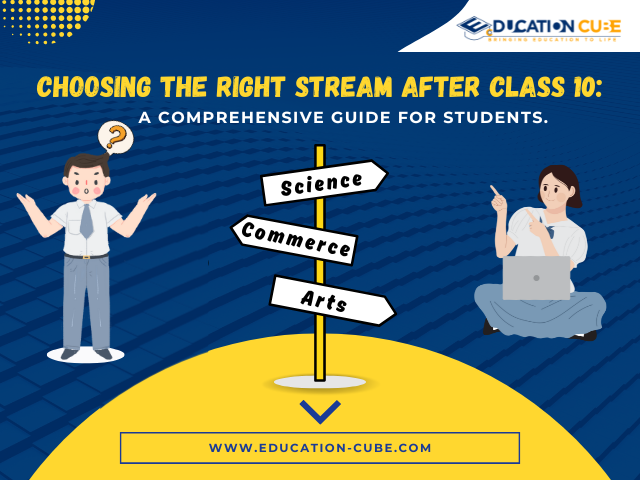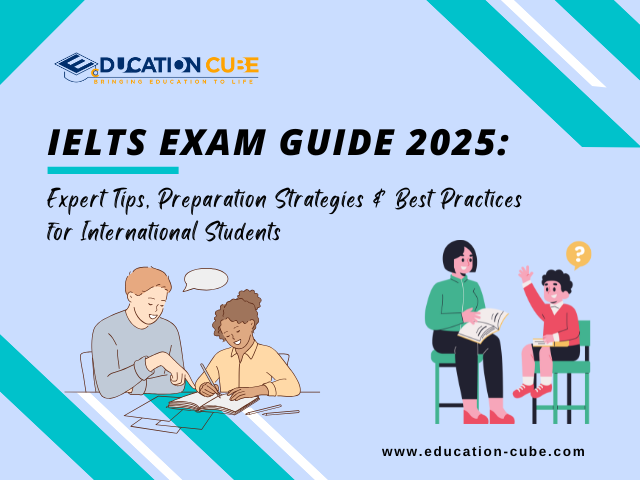
Beyond Rankings: How to Choose the Right Country and University for Higher Studies
Every year, millions of students worldwide dream of studying abroad. For many, it's not just about gaining a degree — it's about unlocking better career opportunities, expanding global perspectives, and building a life of impact. While international university rankings dominate search results and headlines, the truth is that choosing the correct country and university for higher studies goes far beyond the rankings.
Here’s how students and parents can make smarter, more meaningful choices.
1. Define Your Academic and Career Goals
Start by identifying your long-term goals:
- Are you looking for research opportunities?
- Do you want to pursue a career in a specific industry or country?
- Are you more inclined towards academic depth or applied/practical learning?
Understanding your destination matters. For example, Germany is renowned for its engineering and innovation, the UK for its humanities and business, Canada for its co-op and career-integrated learning, and Australia for its programs in environmental sciences and health.
2. Understand Immigration and Work Opportunities
Post-study work policies and immigration pathways are just as important as the education itself. Ask:
- Can I work during my studies?
- What is the post-study work visa duration?
- Does the country offer permanent residency (PR) pathways for international students?
For example:
- Canada offers a 1–3 year PGWP and clear PR options.
- Australia and New Zealand also have work permits and skilled migration routes.
- The UK now allows 2-year post-study work visas under the Graduate Route.
- Germany offers 18 months for job search after graduation.
3. Evaluate Cost of Living and Tuition
A highly ranked university in an expensive city may not always be the best value for money.
Consider:
- Tuition fees (Are there scholarships or assistantships?)
- Cost of living (housing, transport, healthcare)
- Currency exchange and your funding options
Countries like Germany, Norway, and Finland offer tuition-free or low-cost public education. Scholarships in the US, Canada, and the UK can significantly reduce the costs associated with pursuing higher education.
4. Explore the Learning Environment
Not all universities teach the same way. Understand the style of education:
- Is the curriculum research-heavy or practical?
- Are there internships, co-ops, or industry linkages?
- What is the faculty-to-student ratio?
Also, look into campus culture:
- Is it diverse and inclusive?
- Are there student support services?
- Do you feel aligned with the values and environment?
5. Career Support and Alumni Network
A strong career services department can open doors. Ask:
- Does the university have career fairs and employer partnerships?
- How active is the alumni network?
- Are international students placed well after graduation?
Often, it’s alumni who create job pathways, mentorship, and referrals in competitive job markets.
6. Language, Culture, and Lifestyle Fit
Don’t underestimate lifestyle compatibility. Language barriers, social norms, food, and even climate can impact your well-being and performance.
- Is the course taught in English?
- Are there language requirements (IELTS, TOEFL, or local language)?
- Will you enjoy living in a big city or a small town?
Consider not just the university experience but the life you will live during your time abroad.
7. Leverage Expert Guidance
Work with experienced study abroad advisors, alumni, or mentors who can help you:
- Compare programs and countries realistically
- Understand application timelines and visa processes
- Prepare your documents and financial plan
Beyond rankings, it's personalization and preparation that lead to success.
Final Thought: Choose Fit Over Fame
A top-ranked university that doesn’t align with your goals may do more harm than good. Instead, focus on:
- Alignment with your purpose
- Opportunities for growth
- Long-term value for your career
Choose the university that is right for you, not just the one everyone talks about.
Because in the end, studying abroad is not about where you go. It’s about what you become.
 Software Developer: Powering the Digital World Through Innovation
Software Developer: Powering the Digital World Through Innovation
 Global Pharmacy Programs: Elevate Your Career with World-Class Education and Practical Exposure
Global Pharmacy Programs: Elevate Your Career with World-Class Education and Practical Exposure
 Artificial Intelligence (AI) and Machine Learning (ML) Careers: Building the Future of Innovation
Artificial Intelligence (AI) and Machine Learning (ML) Careers: Building the Future of Innovation
 Study Cloud Computing Abroad: Destinations, Courses, Careers & Trends for 2025
Study Cloud Computing Abroad: Destinations, Courses, Careers & Trends for 2025
 Choosing the Right Stream After Class 10: A Comprehensive Guide for Students
Choosing the Right Stream After Class 10: A Comprehensive Guide for Students
 IELTS Exam Guide 2025: Expert Tips, Preparation Strategies & Best Practices for International Students
IELTS Exam Guide 2025: Expert Tips, Preparation Strategies & Best Practices for International Students
 A Comprehensive Guide to Writing a Letter of Intent for Higher Education
A Comprehensive Guide to Writing a Letter of Intent for Higher Education
 Study in France: A Comprehensive Guide for International Students
Study in France: A Comprehensive Guide for International Students
 International Relations & Political Science: Studying Global Affairs Abroad
International Relations & Political Science: Studying Global Affairs Abroad
00 Comments
Leave a Comment